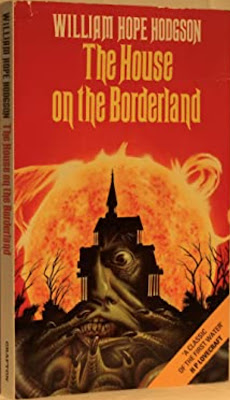Eidolons
by
Walter Whitman
I met a seer,
Passing the hues and objects of the world,
The fields of art and learning, pleasure, sense,
To glean eidolons.
Put in thy chants said he,
No more the puzzling hour nor day, nor segments, parts, put in,
Put first before the rest as light for all and entrance-song of all,
That of eidolons.
Ever the dim beginning,
Ever the growth, the rounding of the circle,
Ever the summit and the merge at last, (to surely start again,)
Eidolons! eidolons!
Ever the mutable,
Ever materials, changing, crumbling, re-cohering,
Ever the ateliers, the factories divine,
Issuing eidolons.
Lo, I or you,
Or woman, man, or state, known or unknown,
We seeming solid wealth, strength, beauty build,
But really build eidolons.
The ostent evanescent,
The substance of an artist’s mood or savan’s studies long,
Or warrior’s, martyr’s, hero’s toils,
To fashion his eidolon.
Of every human life,
(The units gather’d, posted, not a thought, emotion, deed, left out,)
The whole or large or small summ’d, added up,
In its eidolon.
The old, old urge,
Based on the ancient pinnacles, lo, newer, higher pinnacles,
From science and the modern still impell’d,
The old, old urge, eidolons.
The present now and here,
America’s busy, teeming, intricate whirl,
Of aggregate and segregate for only thence releasing,
To-day’s eidolons.
These with the past,
Of vanish’d lands, of all the reigns of kings across the sea,
Old conquerors, old campaigns, old sailors’ voyages,
Joining eidolons.
Densities, growth, facades,
Strata of mountains, soils, rocks, giant trees,
Far-born, far-dying, living long, to leave,
Eidolons everlasting.
Exalte, rapt, ecstatic,
The visible but their womb of birth,
Of orbic tendencies to shape and shape and shape,
The mighty earth-eidolon.
All space, all time,
(The stars, the terrible perturbations of the suns,
Swelling, collapsing, ending, serving their longer, shorter use,)
Fill’d with eidolons only.
The noiseless myriads,
The infinite oceans where the rivers empty,
The separate countless free identities, like eyesight,
The true realities, eidolons.
Not this the world,
Nor these the universes, they the universes,
Purport and end, ever the permanent life of life,
Eidolons, eidolons.
Beyond thy lectures learn’d professor,
Beyond thy telescope or spectroscope observer keen, beyond all mathematics,
Beyond the doctor’s surgery, anatomy, beyond the chemist with his chemistry,
The entities of entities, eidolons.
Unfix’d yet fix’d,
Ever shall be, ever have been and are,
Sweeping the present to the infinite future,
Eidolons, eidolons, eidolons.
The prophet and the bard,
Shall yet maintain themselves, in higher stages yet,
Shall mediate to the Modern, to Democracy, interpret yet to them,
God and eidolons.
And thee my soul,
Joys, ceaseless exercises, exaltations,
Thy yearning amply fed at last, prepared to meet,
Thy mates, eidolons.
Thy body permanent,
The body lurking there within thy body,
The only purport of the form thou art, the real I myself,
An image, an eidolon.
Thy very songs not in thy songs,
No special strains to sing, none for itself,
But from the whole resulting, rising at last and floating,
A round full-orb’d eidolon.
Also see:
About the Author
Walter Whitman (/ˈhwɪtmən/;
May 31, 1819 – March 26, 1892) was an American poet, essayist and
journalist. A humanist, he was a part of the transition between
transcendentalism and realism, incorporating both views in his works.
Whitman is among the most influential poets in the American canon, often
called the father of free verse. His work was controversial in its
time, particularly his 1855 poetry collection Leaves of Grass, which was
described as obscene for its overt sensuality. Whitman's own life came
under scrutiny for his presumed homosexuality.


.jpg)
%20(3).jpeg)




